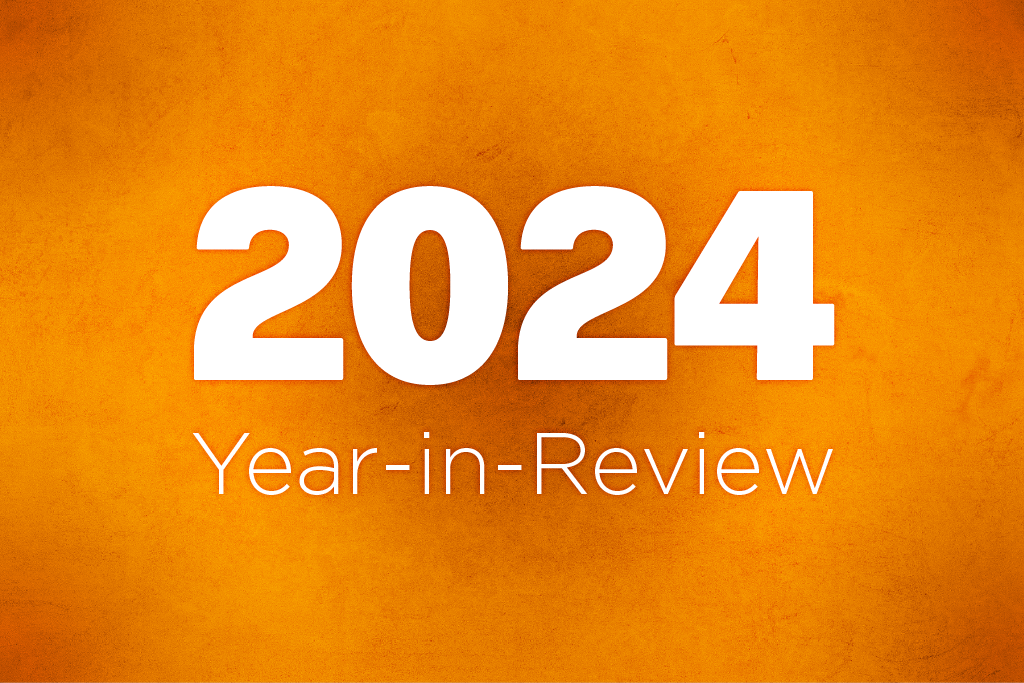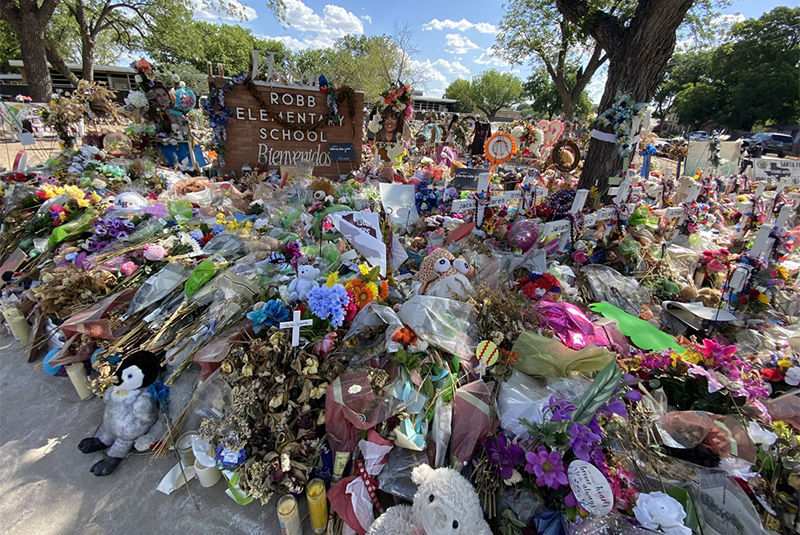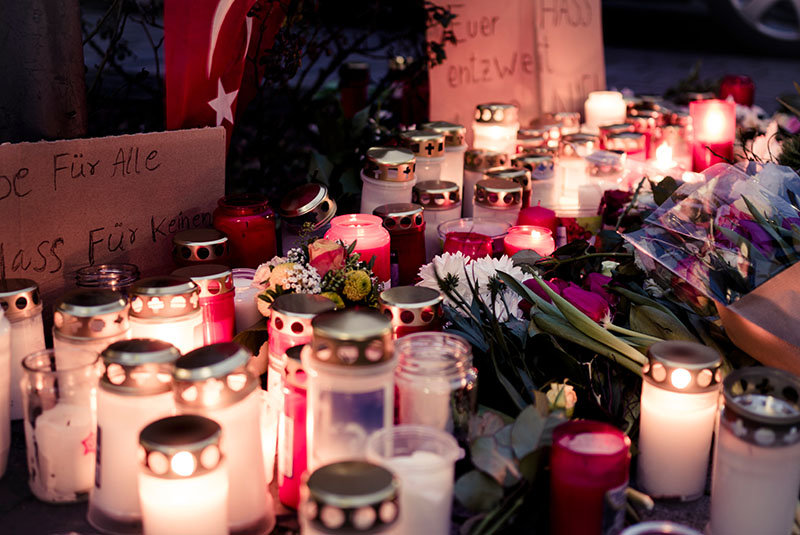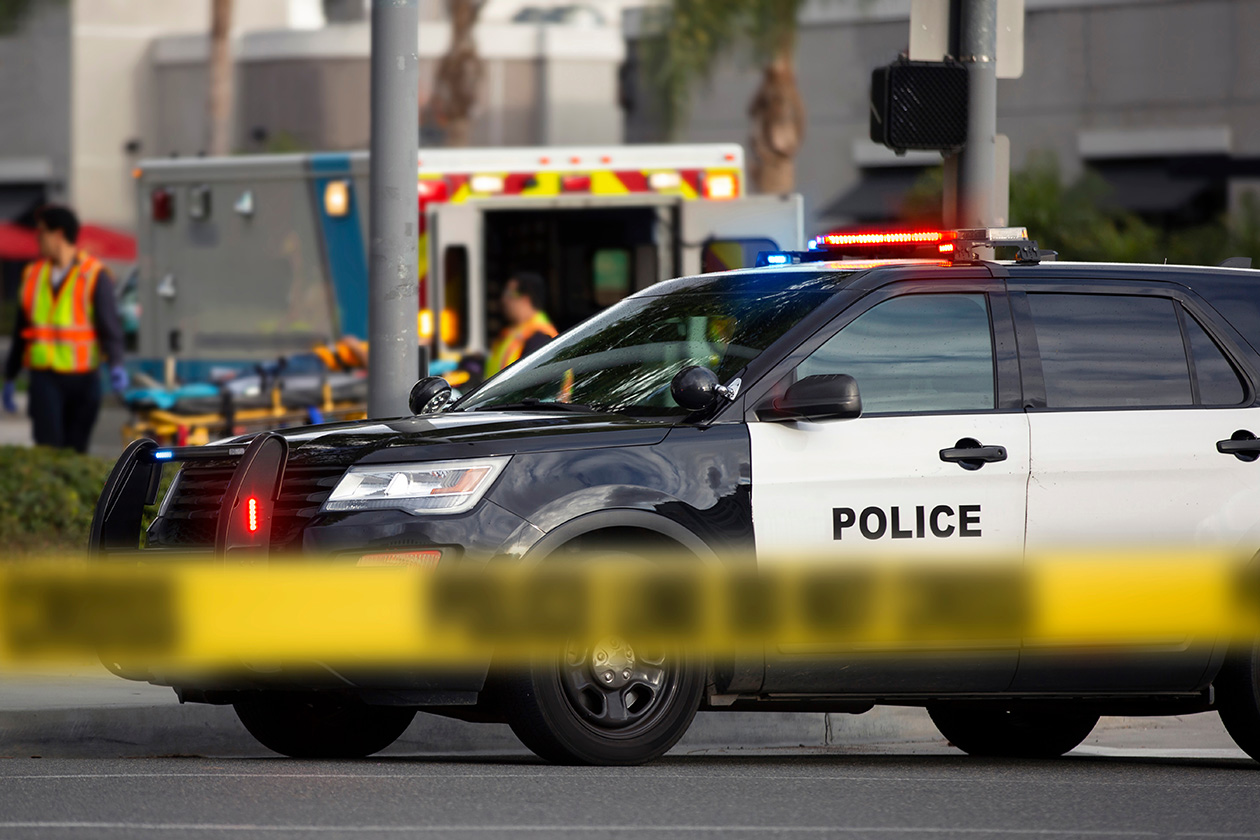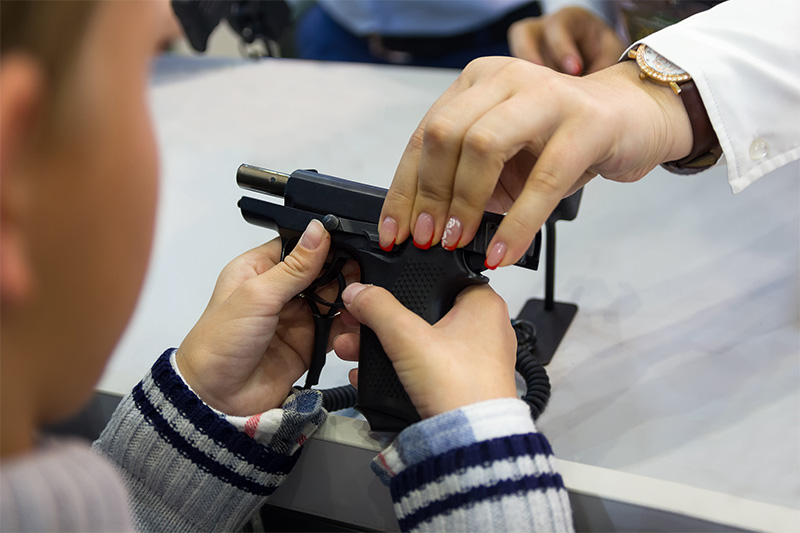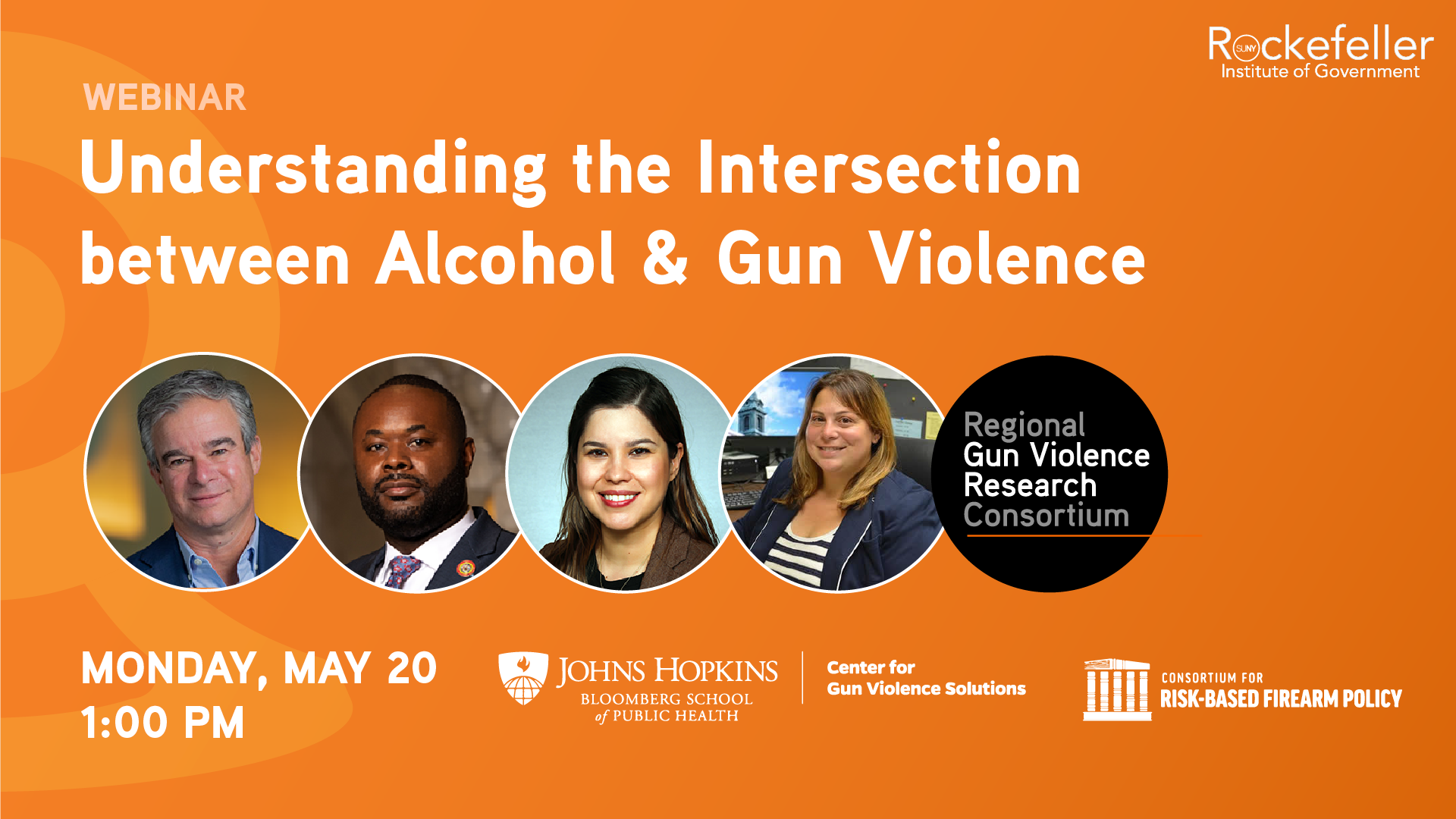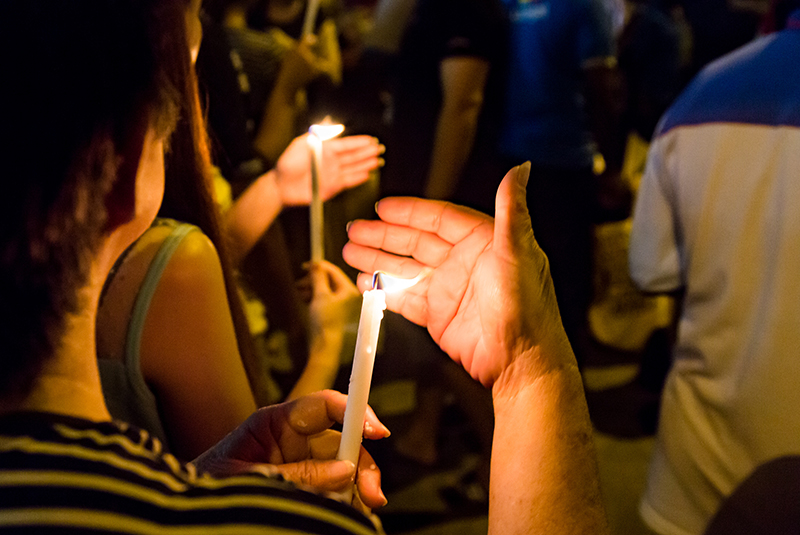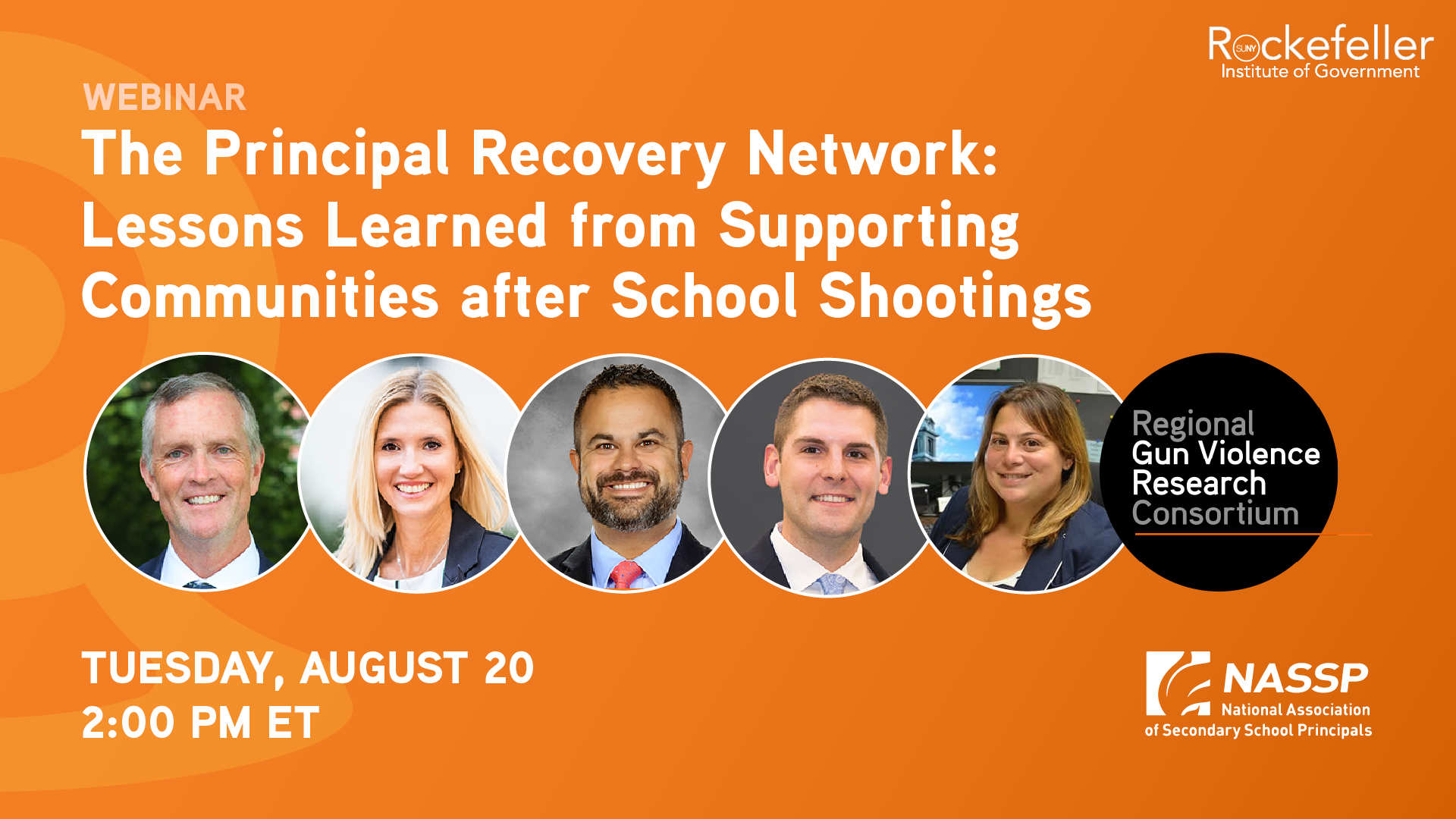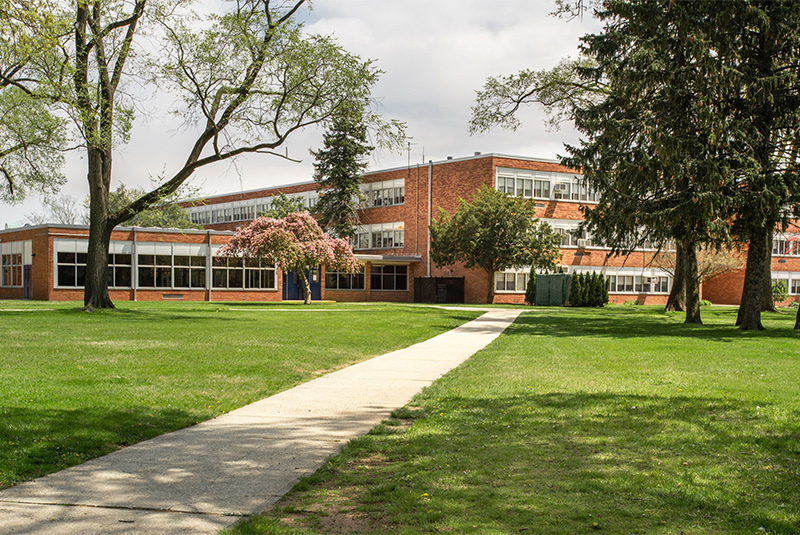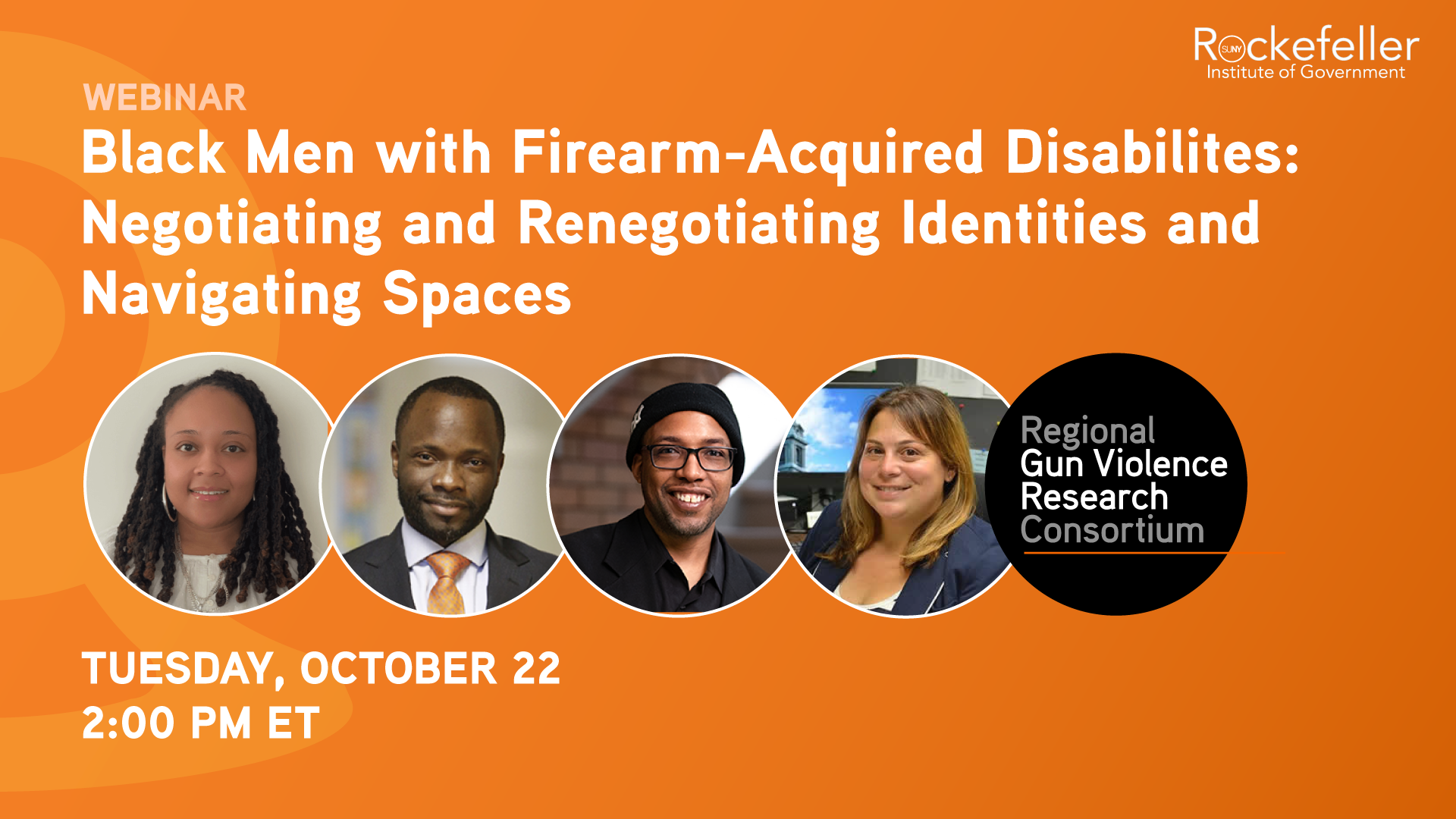Coming off the unfortunately near-record year of 2023, one that saw nearly 47,000 individuals lose their lives to firearms and a similarly high number of nonfatal victimizations, gun violence remained an issue of concern among policymakers and the public alike as we moved into 2024. This year, for the first time ever, firearm violence was declared to be a public health crisis by the US Surgeon General, due not only to the direct impacts of this issue but the broader collective harm to society. Our team of experts at the Regional Gun Violence Research Consortium (RGVRC), a group of nearly 150 researchers and practitioners from across the nation, worked to lend an evidence-based and research-focused understanding of gun violence and to highlight more nuanced facets of this issue. Here’s a look back at the work of the RGVRC in 2024.
We presented expert insights on a range of gun violence-related issues this year, including mass shootings both in the US and across the globe, as well as police shootings. Other pieces explored important policy questions in the aftermath of the United States Supreme Court’s decision in New York State Rifle & Pistol Association, Inc. v. Bruen in 2022, such as whether restrictions on firearm ownership for marijuana users and juveniles would be upheld in light of the new balancing test established by the court. Our researchers also considered new and emerging policies to combat gun violence, such as those that seek to reduce the dangers of alcohol and firearm misuse.
A significant focus in 2024 was understanding the impacts of gun violence on those who experience it in order to be able to better combat the harmful effects of this epidemic. This included analysis about the impacts of gun violence on Black Americans, and Black men more specifically, who bear a disproportionate burden of such effects. We also explored survivorship more broadly in a series of pieces during National Gun Violence Awareness Month in June. This series offered a window into the experiences of mass shooting survivors and the physicians who treat them, survivors of community gun violence and intimate partner homicides, and the financial costs of this issue and its associated barriers and impacts. Individuals with lived experiences also joined the RGVRC to share how they are helping others who are impacted by gun violence.
While it is crucial to understand how to support those who have been affected by firearm violence, it is equally as important to work to prevent it from happening in the first place, and our experts’ work this year shed light on different promising avenues for prevention. This included often-cited practices like safe storage of firearms as well as emerging avenues such as behavioral threat assessment, physician screening, and recognizing traumatic brain injuries in servicemembers and veterans. We also examined state social policies that can have more widespread effects on the prevention of gun violence.
We remained at the ready with responsive commentary on gun violence issues as they arose. This included identifying key takeaways from the US Department of Justice’s report concluding its investigation into the 2022 mass shooting at Robb Elementary School in Uvalde, TX, and what their recommendations mean for those tasked with keeping schools safe. RGVRC members also weighed in with both initial reactions and detailed analysis of the US Supreme Court’s decision in the Rahimi case, which represented the first significant Second Amendment case since the Bruen decision in 2022, as well as active shooter preparedness efforts in schools following President Biden’s executive order to ensure drills are conducted safely. Additionally, our experts examined changes in how presidential candidates address firearms in their campaigns ahead of the election in November.
Collectively, in 2024, the experts at the RGVRC have provided numerous important insights for policymakers and members of the public who continue to work to combat the public health crisis of gun violence in America. As we look ahead to 2025 and the changes that come with it, including a new presidential administration and the potential for additional legislative and policy changes surrounding the issue of firearm violence, we remain committed to providing expert analysis rooted in evidence and best practices. While we have recently seen, albeit provisionally, slight decreases in firearm violence, there still remains a tremendous amount of work to be done.
Revisit all of the RGVRC research products from 2024 here:
Lessons Learned from the US Department of Justice’s Uvalde Review: Key Takeaways for Policymakers, Practitioners, and Schools
Jaclyn Schildkraut, January 2024
Public Mass Shootings Around the World: Prevalence, Context, and Prevention
Jason Silva, February 2024
Police Shootings of Residents Across the United States, 2015-20: A Comparison of States
John Shjarback, April 2024
25 Years Later: The Lasting Impact of Columbine on Gun Violence Prevention and Response
Jaclyn Schildkraut, April 2024
Understanding the Intersection between Alcohol and Gun Violence
webinar feat. Joshua Horwitz & Silvia Villarreal, May 2024
The Cost of Gun Violence and How Gun Violence Survivors Navigate Those Costs
Jennifer Carlson, June 2024
Nobody Cares About Us Because We Survived: Perspectives of Community Gun Violence Survivors About the Challenges They Face
Lauren Magee, June 2024
Access to Firearms by Domestic Abusers: Before and After Rahimi
Elizabeth Tobin-Tyler, Esprene Liddell-Quintyn, Kaitlin Sidorsky, & Wendy Schiller, August 2024
The Principal Recovery Network: Lessons Learned from Supporting Communities after School Shootings
webinar feat. Michael Bennett, Michelle Kefford, Michael Sedlak, & Greg Waples, August 2024
Saving Lives Through Screening: Physicians’ Crucial Role in Firearm Suicide Prevention
Allison Bond & Taylor Rodriguez, September 2024
Fear, Danger, and K-12 Security: The Importance of Behavioral Threat Assessment
Jack Rozel, October 2024
Rethinking Our Approach to Active Shooter Preparedness in Schools
Jaclyn Schildkraut, Emily Greene-Colozzi, & Amanda Nickerson, October 2024
Black Men with Firearm-Acquired Disabilities: Negotiating and Re-Negotiating Identities and Navigating Spaces
webinar feat. Nazsa Baker, Hasim Garrett, & Christopher St. Vil, October 2024
ABOUT THE AUTHOR
Jaclyn Schildkraut is the executive director of the Regional Gun Violence Research Consortium at the Rockefeller Institute of Government

